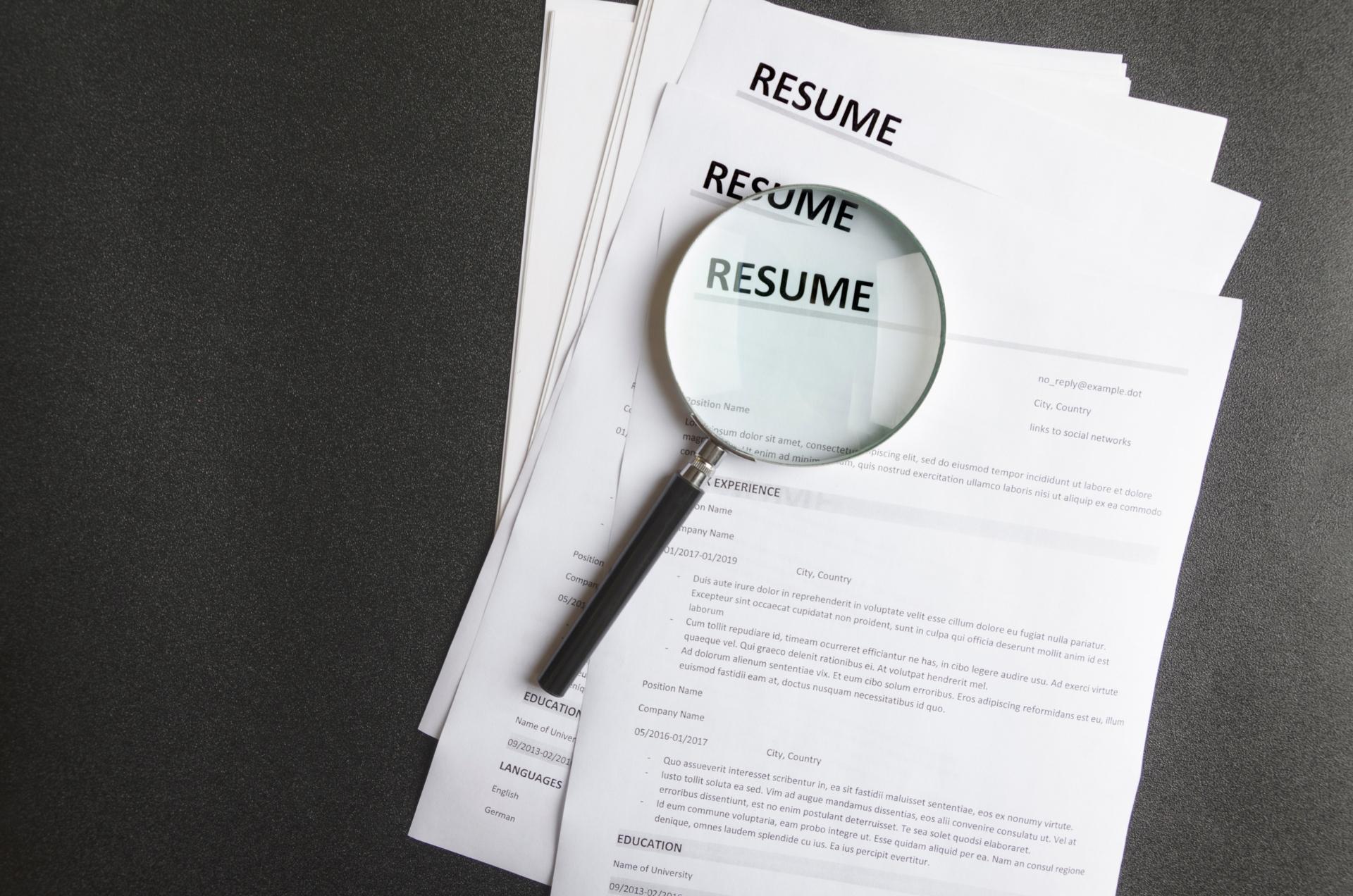A formal resume summarises your professional qualifications, such as relevant work experience, abilities, education, and notable achievements. A resume, which is usually accompanied by a cover letter, helps you demonstrate your skills and persuade employers that you are qualified and hireable.
The spelling “résumé” is derived from French and means “summary.” A resume’s objective is still to offer employers a summary of their relevant qualifications.
When you apply for a job, the first thing hiring managers see is your resume (and it’s perhaps the most crucial aspect of your application).
Submitting an inefficient, poorly written, or unprofessional resume is one of the quickest ways to lose an employer’s attention. If you are looking for a job, you must submit a résumé to be considered for the position. A resume, at its most basic, consists of the five sections listed below:
- Contact information
- Introduction
- Background in education
- Work experience
- Relevant abilities
Why resume important for Job seekers
A resume and a cover letter are required to be considered for a position and are essential to the recruiting process. A solid CV is the first component of your application that any hiring manager will view, so it must express your qualifications clearly and convincingly.
Your resume should provide companies with a concise outline of your relevant skills, career history, educational background, and accomplishments. They will decide whether or not to interview or hire you based on this information. However, creating a CV from scratch can be time-consuming. Use our online resume creator to make the process easier. Simply enter your information, and our program will assist you in creating a flawlessly designed resume that is sure to impress any employer.
Resume mistakes need to be avoided
1. Not tailoring your resume to each position
Hiring managers can tell if you send the same generic CV with each application, and it’s also a missed opportunity to demonstrate that you have the exact skills and expertise they’re searching for. Distinct firms have different demands, and a well-written CV demonstrates to recruiters how you can assist in meeting those goals.
Rather than sending a generic resume to each employer, look at the job description and the company website for ideas and specific keywords to include in your work experience section.
2. Making use of clichés
You want your CV to persuade recruiters that your unique abilities and characteristics will benefit the organization. A résumé with too many overused terms and buzzwords may appear unimaginative.
Here are a few examples of overused resume keywords that should be avoided:
Team player that works hard
- Ambitious
- Self-starter
- Enthusiastic
- Flexible
- Exceptional
- Go-getter
- Results-driven
- Proactive
Incorporating action verbs into your work experience part of your resume is a more effective way to demonstrate these characteristics. Here’s an example of using action verbs:
Also Read – ” Guide to your first week on the job “
3. Grammar and spelling errors
In competitive situations with numerous highly competent applicants, a minor error can mean the difference between you and someone else winning the job. If your resume has language and spelling issues, employers may assume you’re careless or uninterested in the position. This is one of the most prevalent resume blunders, so take the time to carefully check your resume before sending it out.
4. Making a resume too long
Making your CV overly long is one of the most prevalent resume blunders, and it frequently irritates hiring supervisors.
Hiring managers only have so much time to spend on each application, so when they see a résumé that details every job you’ve ever had, their eyes glaze away. The simplest approach to avoid this is to include only material that is directly relevant to the position you are applying for. For example, if you’re seeking an office job, you should remove your college dishwashing job from your CV because the skills you learned are unlikely to be transferable.
Finally, unless you have more than ten years of job experience, your resume should be one page long.
If you are not a recent graduate looking for work, you should leave the following information off your resume (unless it is relevant to the position you want):
- Jobs for the summer
- Internships
- Experience as a volunteer
- Interests and hobbies
- Unrelated qualifications and certifications
- Experience in high school (unless you are a high school student or do not have a higher education degree)
5. Exaggerating abilities
One of the most serious CV blunders you can make is exaggerating or lying on your resume. If your exaggerations are discovered during the hiring process, you will appear untrustworthy, which may lose you the job. Conversations with your references or a fast look at your social media can quickly uncover lies.
Even if you secure the job despite lying about your qualifications, you may find yourself unable to meet your employer’s expectations if you lack the abilities required to complete the role’s obligations. It is far preferable to be truthful about your talents and expertise than to enter a job unprepared and be dismissed.
6. Not putting proper format in resume
Not only must the substance of your resume wow employers, but the formatting of your resume must also be appealing. Your resume style must be easy to read and professional-looking, from the colors you employ to the page margins. A sloppy or badly structured resume is an instant turnoff for many companies, sending the message that you lack attention to detail. This can quickly jeopardize your prospects of landing a job (even one you have the right experience for).
Use a tried-and-true format, such as the chronological resume, to ensure your resume is well-organized and easy to read. This format, which is the most common among job searchers, showcases your experience logically. Additionally, ensure that all of your resume’s spacing and design elements (such as horizontal lines and headings) are consistent and professional. Broken or otherwise bad formatting makes your CV appear hurriedly put together and gives the impression that you are uninterested in the position.
For example, consider the following resume from a highly competent individual, which is poorly formatted (notice the uneven margins, inconsistent font sizes, and misplaced icons):
7. Focus on responsibilities, not your Accomplishment
“Responsible for,” “tasked with” – hiring managers frequently find passive statements like these on resumes. The issue is that these sentences are too general and do not contextualize your experience in terms of what you accomplished. Instead of giving prospective employers a detailed description of your previous job responsibilities, highlight a few particularly remarkable accomplishments on your resume.
Also Read – ” Why should you use a recruitment agency? “
Employers want to know if you’re skilled at your job. Convince them by providing concrete examples of times when you excelled at work, and don’t forget to back up some of your accomplishments with hard numbers.
8. Disclosing salary requirement
While it is important to evaluate your worth as an employee, you should avoid including your wage requirements on your resume unless specifically requested to do so.
You should focus on what you can do for the company rather than what the firm can do for you during the initial hiring stage. You will have the opportunity to discuss pay later (typically after or during the interview process). If the first thing recruiting managers to learn about you is how much money you plan to make, you’ll appear more focused on the income than the actual work you’ll need to complete, which makes most employers uncomfortable.
Conclusion
Don’t be panicked if you email your seemingly immaculate CV only to discover an error or two later. Be gentle with yourself; it’s not the end of the world.
Many people have been recruited for jobs despite having mistakes on their resumes. We are all human, and we all make mistakes regularly. However, some strategies can eliminate the likelihood that they will harm your resume.
Aside from running a spell checker and checking it again, have a couple of eagle-eyed friends scan your resume before you apply for your next job. They are significantly more likely to catch any formatting, punctuation, spelling, or chronology flaws that you may have overlooked. Last but not least, make time for routine maintenance. Update your resume regularly to ensure that you have an up-to-date, thoroughly proofread career document. This will help you be prepared the next time an unexpected opportunity presents itself.











